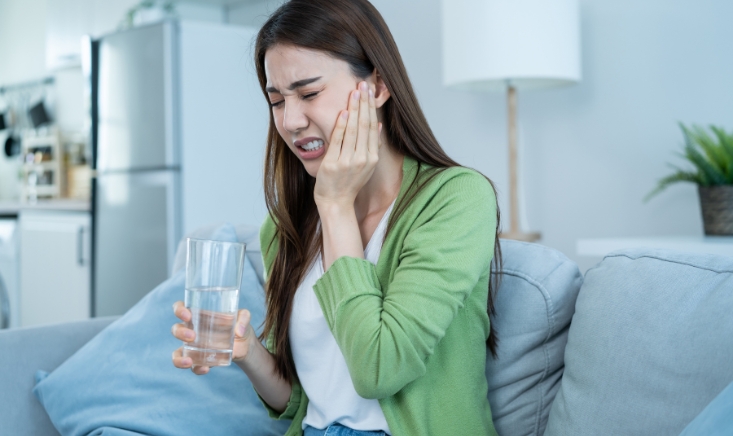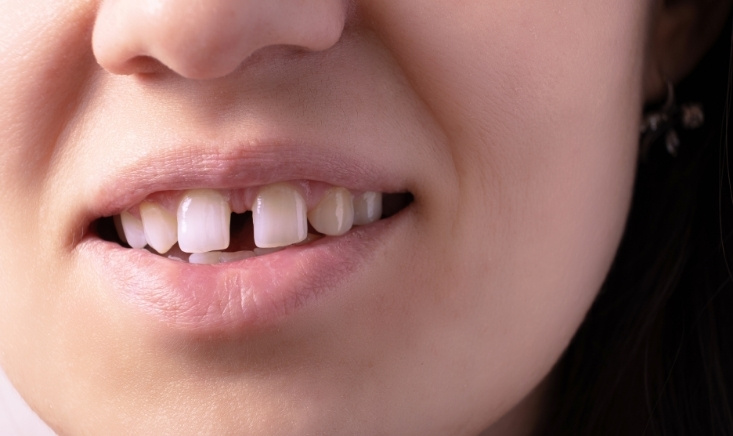Can Dry Mouth Be A Sign Of Obstructive Sleep Apnea?

Obstructive Sleep Apnea (OSA) is a common but serious sleep disorder where the airway becomes blocked repeatedly during sleep, leading to reduced or completely stopped airflow. One lesser-known symptom associated with OSA is dry mouth. In this blog, we’ll explore the connection between dry mouth and obstructive sleep apnea, the potential causes, and what can be done to manage this symptom.
Understanding Obstructive Sleep Apnea
That happens when the throat’s rear muscles in spite of the attempt to breathe, fail to maintain the airway open. This condition leads to multiple pauses in breathing throughout the night, disrupting the sleep cycle and often resulting in a decrease in blood oxygen levels. Common symptoms of OSA include loud snoring, daytime sleepiness, and headaches, but Xerostomia is a symptom that can also significantly impact those suffering from the condition.
The Surprising Connection Between Dry Mouth and OSA
One of the symptoms of xerostomia is insufficient saliva in the mouth. It may result in a number of oral health issues, such as gum disease, tooth decay, and foul breath. But why is it so commonly seen in individuals with OSA?
- Mouth Breathing: One of the primary reasons people with OSA experience xerostomia is mouth breathing. When the airway blocks entirely or partially while you’re sleeping, individuals often breathe through their mouths to compensate. Breathing through the mouth, especially for prolonged periods, can cause saliva to evaporate more quickly, leading to a dry mouth.
- Use of CPAP Machines: For the treatment of OSA, Continuous Positive Airway Pressure (CPAP) devices are frequently utilized. While effective in keeping the airway open, CPAP machines can contribute to dry mouth, particularly if the mask is not well-fitted or if the air pressure is too high. The airflow from the CPAP machine can dry out the mouth, especially if the individual continues to breathe through their mouth while using the device.
- Medications: Many individuals with OSA are prescribed medications to manage their condition, some of which can have the side effect of dry mouth. For instance, medications for high blood pressure, allergies, or anxiety—conditions that often co-occur with OSA—can reduce saliva production.
Recognizing the Impact of Dry Mouth
Xerostomia is more than just a minor inconvenience; It may have a major impact on general well-being and oral health. Here are some of the ways dry mouth can impact those with OSA:
- Increased Risk of Tooth Decay: The neutralization of acids generated by oral bacteria is facilitated by saliva. These acids can erode tooth enamel in the absence of enough saliva, which can result in cavities.
- Gum Disease: A lack of saliva can also contribute to the accumulation of tartar and plaque, increasing the risk of gum disease. This illness may result in gum bleeding, irritation, and even tooth loss if left untreated.
- Bad Breath: Saliva aids with oral hygiene by washing away food particles and bacteria. When saliva production is reduced, these particles can accumulate, leading to chronic bad breath.
- Difficulty Eating and Speaking: Xerostomia can make it difficult to chew and swallow food, as well as impair speech. This can affect an individual’s quality of life, making it uncomfortable to eat or communicate.
Managing Dry Mouth in Obstructive Sleep Apnea (OSA) Patients
If you’re experiencing xerostomia as a symptom of OSA, there are several strategies you can employ to help control the illness and lessen its effects on your oral health:
- Ensure Proper CPAP Use: If you’re using a CPAP machine, make sure the mask fits well and consider using a humidifier attachment to add moisture to the air. This can help reduce dryness in the mouth. Additionally, consult with your healthcare provider to adjust the air pressure settings if necessary.
- Stay Hydrated: Drinking plenty of water throughout the day can help keep your mouth moist. Avoid beverages that can contribute to dry mouth, such as caffeine and alcohol.
- Practice Good Oral Hygiene: Brush your teeth at least twice a day with fluoride toothpaste and floss daily. Consider using a mouthwash specifically designed for xerostomia to help stimulate saliva production.
- Use Saliva Substitutes: Over-the-counter saliva substitutes can help relieve the discomfort of dry mouth. These products come in various forms, including sprays, lozenges, and gels.
- Limit Sugar and Acidic Foods: For those who have dry mouth, eating foods high in sugar and acid can raise their risk of tooth decay. Instead of consuming as many of these items as possible, try to stick to a balanced diet full of healthy grains, fruits, and vegetables.
- Chew Sugar-Free Gum: Chewing sugar-free gum can help stimulate saliva production, providing relief from dry mouth. Look for gum containing xylitol, a sugar substitute that can also help protect against tooth decay.
When To Seek Professional Help On This Matter?
If you’re struggling with dry mouth and OSA, it’s essential to consult with both your sleep specialist and dentist. They can work together to identify the cause of your xerostomia and develop a treatment plan tailored to your needs. In some cases, addressing dry mouth may require adjusting your OSA treatment or incorporating additional therapies to manage the condition effectively.
In the end, Dry mouth is a common yet often overlooked symptom of obstructive sleep apnea. It can lead to various oral health issues and impact an individual’s quality of life. Understanding the connection between xerostomia and OSA is crucial for managing the condition effectively.
By following the strategies outlined above, you can reduce the impact of dry mouth and protect your oral health while managing OSA. If xerostomia persists despite these measures, seeking professional advice is essential to ensure you receive the appropriate care.
Managing OSA and its associated symptoms requires a comprehensive approach. By staying informed and proactive, you can improve your sleep quality, oral health, and overall well-being.



